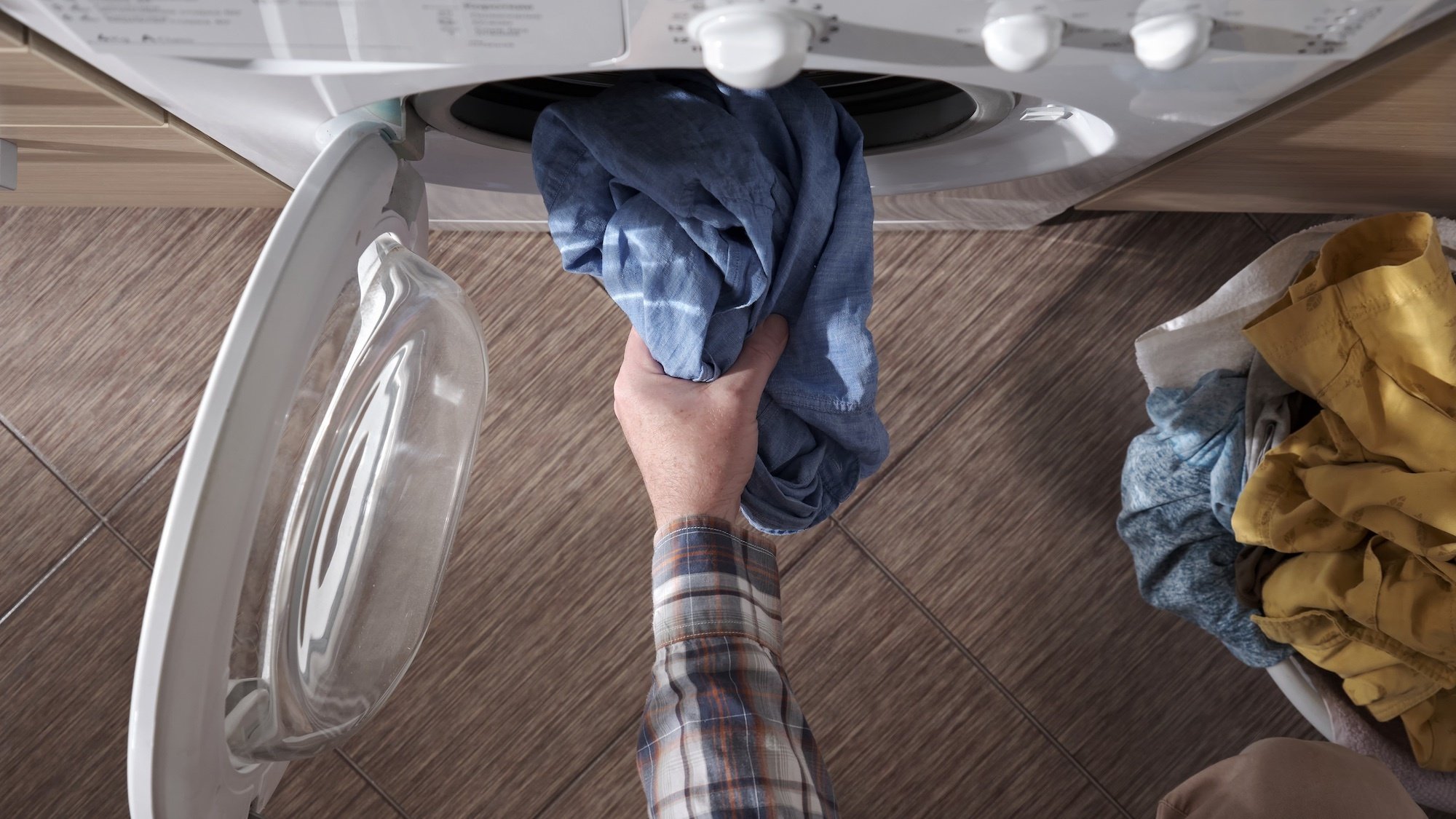How many days do we think a worn garment should stay in the washing machine? Not many, according to a guide published last December by the Agency for Ecological Transition (ADEME). We tend to "wash our clothes earlier than necessary", while "frequent washing increases the electricity consumption of households, the pollution of water, and wears out our clothes faster", explains the agency. So then, what habits should we adopt to finally embody the eco-conscious person you were claiming to be before this unfortunate discovery? We’ve got all the tips for you!
🇫🇷👕 "Laver ses jeans après 15 utilisations" : Ce que recommande l’Ademe concernant la fréquence de lavage des vêtements. (Infographie Le Parisien) pic.twitter.com/0eea3qtYbW
— Cerfia (@CerfiaFR) February 2, 2025
Washing your jeans every 15 days, really?
The recommendations from ADEME, highlighted in an infographic by Le Parisien, are as follows: for a cotton shirt, it's good for 4 or 5 wears before washing. For a bra, it’s 7 wears, for a wool sweater, 10 to 15 wears, and for a pair of jeans, it’s a whopping 15 to 30 wears.
Enough to scandalize the hygiene brigade in the comments. "Hello to seduction and long live natural scents. These extreme ecologists disgust me," scoffs a user (clearly on the right) on .
Twitter. « From my point of view, it's far from silly if one maintains perfect personal hygiene. Namely, one shower a month as recommended by Ademe », quips a second. Their body, their choice, as they say.Les recommandations de L'ADEME ont suscité nombre de réactions goguenardes voire choquées.
— Jean-Gaule POTIER (@GaulePotier) February 3, 2025
De mon point de vue, c'est loin d'être idiot si l'on observe une parfaite hygiène corporelle.
À savoir, une douche par mois comme le préconise L'ADEME. pic.twitter.com/KgizuEfnpI
Is it the golden age of "slow wash"?
Despite the differences in opinion, as Le Parisien points out, these habits of washing less have given rise to a movement called slow wash (wash less). Fashion designer Stella McCartney has, for example, claimed she doesn't change her bra every day.
However, after the controversy, even Ademe is correcting its course. Contacted by Le Point – for a particularly critical article – the agency confirms that the information provided was “being updated” at the time of its dissemination. In the new version of the guide, dated February 2025, the agency no longer...no frequency, just that « not all clothing is dirty after being worn once » and attach categories of clothing to the mentions « clothes to wash after being worn once » ; « clothes to wash after being worn multiple times » or « clothes to wash after being worn for several weeks ».
C'est drôle, tout le monde se moque, mais je trouve ça très bien ! Il ne s'agit pas tant de rappeler à Gros Dégueulasse qu'il est de bon ton de changer de slibard tous les jours, mais plutôt d'informer les jeunes (dans mon entourage ce sont plutôt des femmes il faut bien le dire)… https://t.co/NTt7qBMuSU
— SuperNo (@SuperNo) February 2, 2025
Environmental Criteria Over Hygienic Ones
On the professional side, this topic is sparking debate. Le Point, which seems quite upset by the very existence of slow wash, supports its argument by questioning Isabelle Rousseaux, vice-president of the National Union of Dermatologists and Venereologists. It's a perfect opportunity to poke fun at the recommendations from Ademe. "Imagine a Parisian who takes the metro every day, sitting on a seat where someone else just sat before, on a day when they had a gastro... It's not very hygienic," she points out. Okay, point taken.
Others, like Mark Sumner, a design and textiles specialist interviewed by le Parisien, highlight the benefits of such a lifestyle for the environment and the wallet.
e. « Not only do you buy less detergent, but you also save water, energy, and you make your clothes last longer as they get less damaged, keep their colors, and don’t pill», he lists. It’s a practice with its pros and cons, so: among the Mimi Cracra and the party poopers, choose your side.